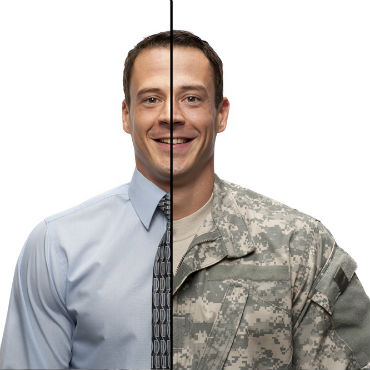Has the veteran preference broken federal hiring?

There are better ways encourage agencies to hire veterans, a former chief human capital officer argues -- but the process is unlikely to change anytime soon.

Preferences for military veterans are baked into the federal hiring process -- a long-established benefit that aims to thank those who served and are trying to transition into the civilian workforce. But as agencies struggle to recruit and retain top talent, are those preferences doing more harm than good?
"If you close the doors and make the press leave ... and very quietly ask people to say what they think, they will tell you the way veterans preference is applied in the government is what's wrong with the federal hiring process," former Department of Homeland Security Chief Human Capital Officer Jeff Neal said.
Neal, who is now ICF's senior vice president for human capital services, took part in a May 22 panel discussion at ACT-IAC's Management of Change Conference (with open doors and press present). In many cases, a service-disabled veteran who is only minimally qualified for a position will "float to the top" and be hired ahead of more qualified applicants.
Robert Shea, a former Office of Management and Budget executive who is now a principal with Grant Thornton, agreed, but with an important caveat. "I want to focus on the construct of that sentence," he said of Neal's initial declaration: "The way we apply veterans' preferences."
"I was very careful about the construct of that sentence," Neal added, "because I don't want to get shot."
The real problem, Neal said, is that "government decided at some point that the only way you can give veterans preference is to put a thumb on the scale, and basically ruin a process that's supposed to be merit-based."
"There are other ways to do it," Neal said. He proposed removing the veterans' preference from the competitive hiring process entirely, and instead give, "every agency in the federal government direct hiring authority for any veteran, for any position for which they're qualified for."
That, he argued, is "a massive preference for veterans that nobody else has. ... If we did that, we will see a lot of veterans hired. We don't have to do it by breaking the other process."
Shea called Neal's suggestion "a gloriously elegant proposal," but noted "it
would take statutes to do it." And veterans' preferences are far from the only problem in the current hiring, he said: "It is end-to-end screwed up."
There is some hope for statutory action, Shea said, as the committees with jurisdiction in both the House and Senate have stated their intent to move civil service reform. The near-term prospects are slim, however, if for no other reason than the legislative calendar is already packed.
Action in 2018 is a possibility, he predicted, and actual implementation of any new law would take at least another year. "Even in the rosiest scenario of reform, you're looking at years," Shea said. "You're looking at a period of time when you're going to have to manage the status quo."
NEXT STORY: Do feds make too much money?


